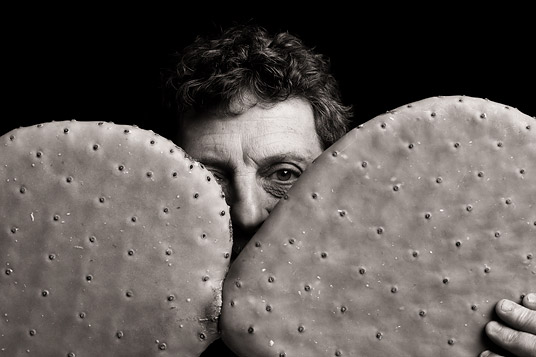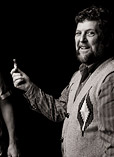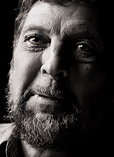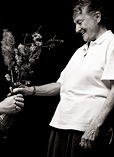
Gary Paul Nabhan
An act of creativity (with Josh Tewksbury)
THEMES: Personal Practice, Art & Literature | WORKSHOP: Natural History & Society
Biography
Gary Paul Nabhan
Gary Paul Nabhan grew up in the Indiana Dunes under the influence of his Lebanese relatives and great naturalists such as Henry Cowles, Donald Culross Peattie and Edwin Way Teale, and did his first "wilderness solo" there at the age of sixteen. After dropping out of high school and working at the Environmental Action national headquarters for the first Earth Day, he went West to Prescott College. It was there that he fell in love with both field biology and narrative natural history. He went on to the University of Arizona for a masters in agricultural botany and a PhD in arid lands resources, simultaneously working in ethnobiology, nature writing and conservation biology. He has published twenty-four books ranging from The Forgotten Pollinators to The Geography of Childhood to Coming Home to Eat. Nabhan currently lives in Patagonia, Arizona where he is involved in collaborative conservation of working landscapes, nectar corridor restoration for migratory pollinators, and genetic resource conservation of native and Mission-era Spanish and Arab food crops.Conversations:
- An act of creativity
- A predictive science
- Binoculars of our age
- On the railroad with binoculars
- Sky dance
- Packrats
Workshops:
Transcript
Josh Tewksbury: What do you view as the relationship between your writing and natural history?
Gary Paul Nabhan: It's like breathing in and out. Natural history observation for me is this outward engagement with the world. But to make sense of it, I have to return to this inward reflection of those patterns. It's simply like breathing in and out. If you have the one without the other you're choking or you're hyperventilating.
The same thing is true no matter what we do with our natural history observations. Whether its simply taking field notes, writing a poem or charting the relationships between different species, it's an act of creativity to begin to make sense of those patterns. It feels like we're elaborating the patterns of self. It's something god-like in ways; we're creating this world by understanding it. I'm not saying that it's true creation, but we experience what it would be like to be a god by seeing this world unfold before our eyes and our own imaginations.


